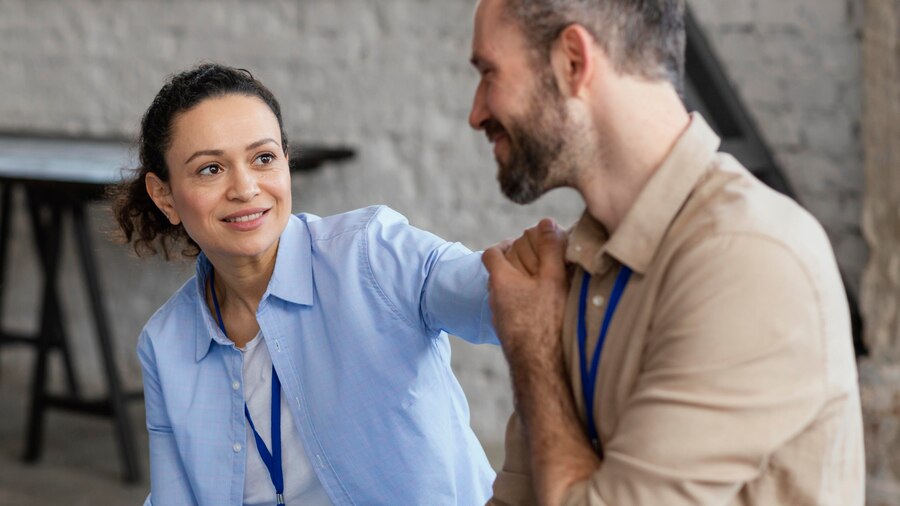Couples Rehab Services
The Importance of Trust in Relationship Recovery
Trust serves as the bedrock of any thriving relationship, yet it becomes particularly delicate in couples navigating addiction recovery. Reestablishing trust post-addiction is pivotal, fostering feelings of safety, security, and intimacy essential for healing. Without trust, couples may encounter challenges in effective communication, conflict resolution, and forging a resilient, enduring bond.
In the aftermath of addiction, partners may grapple with feelings of betrayal, doubt, and uncertainty, undermining the foundation of trust that underpins their relationship. Rebuilding trust requires patience, empathy, and unwavering commitment from both individuals. It entails transparent communication, consistent actions, and mutual accountability to bridge the gap created by past transgressions and rebuild a sense of security and reliability.
Through open dialogue, vulnerability, and sincere efforts to honor commitments, couples can gradually restore trust and strengthen their connection. Seeking support from couples therapy, addiction counseling, or support groups can also provide invaluable guidance and resources for navigating the complexities of trust rebuilding in recovery
Strategies for Rebuilding Trust in Couples Rehab
In couples rehab, rebuilding trust is a foundational aspect of the recovery process. Here are several strategies that couples can employ to facilitate trust rebuilding:
- Open and honest communication: Establishing a safe space for open and honest communication is essential. Couples should strive to share their thoughts, feelings, and experiences without fear of judgment or reprisal. This fosters mutual understanding, empathy, and connection, laying the groundwork for trust to flourish.
- Setting boundaries: Setting clear and mutually agreed-upon boundaries is crucial for rebuilding trust. Couples should openly discuss and establish boundaries around behavior, communication, and expectations. This helps create a sense of safety and predictability in the relationship, promoting trust and respect.
- Trust-building exercises: Engaging in trust-building exercises can help couples strengthen their bond and rebuild trust. These exercises may include role-playing scenarios, problem-solving activities, and other interactive exercises designed to promote communication, empathy, and intimacy. By actively participating in these exercises, couples can learn to rely on each other and rebuild trust through shared experiences.
- Accountability and consistency: Demonstrating accountability and consistency in words and actions is vital for rebuilding trust. Couples should follow through on their commitments, honor agreements, and take responsibility for their behaviors. Consistency builds reliability and credibility, instilling confidence and trust in the relationship.
- Seeking professional guidance: Couples in rehab can benefit from professional guidance and support. Therapy sessions with a qualified therapist or counselor can provide valuable insights, tools, and strategies for rebuilding trust effectively. A trained professional can facilitate constructive communication, address underlying issues, and offer guidance tailored to the couple’s unique needs and circumstances.

Restoring Trust After Addiction
Restoring trust after addiction is a gradual yet achievable process that requires commitment, patience, and mutual effort. Couples recovering from addiction can take proactive steps to rebuild trust and strengthen their relationship:
- Attend couples therapy: Couples therapy offers a structured environment for partners to explore their emotions, address underlying issues, and rebuild trust under the guidance of a trained therapist. Through therapy sessions, couples can improve communication skills, learn healthy coping mechanisms, and establish mutual goals for recovery and rebuilding trust.
- Practice forgiveness: Forgiveness is a cornerstone of rebuilding trust after addiction. Both partners should engage in open and honest conversations, acknowledging past mistakes, expressing remorse, and actively working towards forgiveness. By letting go of resentment and cultivating empathy, couples can heal old wounds and create a foundation of trust for the future.
- Build a support network: Establishing a robust support network is vital for couples navigating the challenges of addiction recovery and trust restoration. Surrounding themselves with understanding friends, family members, and support groups can provide invaluable encouragement, guidance, and solidarity throughout the journey. Seeking support from individuals who have experienced similar struggles can offer empathy and perspective, reinforcing the couple’s commitment to recovery and trust-building.
By embracing these strategies and remaining dedicated to the process, couples can gradually rebuild trust, foster resilience, and cultivate a stronger, healthier relationship in the aftermath of addictiom.
Rebuilding Trust at Couples Rehab
In the journey of addiction recovery, rebuilding trust within a relationship is paramount for healing and growth. Trust forms the foundation of connection, intimacy, and security between partners, yet it can be fragile, especially after experiencing the challenges of addiction. Reestablishing trust requires patience, empathy, and consistent effort from both individuals, along with open communication and mutual accountability. Strategies such as setting boundaries, engaging in trust-building exercises, and seeking professional guidance through couples therapy can facilitate the process of trust rebuilding.
By committing to these strategies and embracing forgiveness and support, couples can gradually restore trust, strengthen their bond, and navigate the path of recovery together with resilience and hope. Contact us today to learn more about how our therapy programs can support you and your partner on this journey.
FAQs
- Why is trust important in relationship recovery, particularly for couples in rehab?
- Trust is essential for fostering feelings of safety, security, and intimacy in relationships, especially during addiction recovery. It forms the foundation for effective communication, conflict resolution, and building a resilient bond between partners.
- What challenges do couples face in rebuilding trust after addiction?
- Couples may grapple with feelings of betrayal, doubt, and uncertainty, which can undermine trust. Past transgressions and the aftermath of addiction can create barriers to trust rebuilding, requiring patience, empathy, and commitment from both partners.
- What are some strategies for rebuilding trust in couples rehab?
- Strategies include open and honest communication, setting boundaries, engaging in trust-building exercises, demonstrating accountability and consistency, and seeking professional guidance through therapy sessions with a qualified therapist or counselor.
- How can couples practice forgiveness in trust rebuilding?
- Forgiveness involves acknowledging past mistakes, expressing remorse, and actively working towards letting go of resentment. Through open and honest conversations, couples can cultivate empathy and understanding, laying the groundwork for forgiveness and trust restoration.
- What role does couples therapy play in rebuilding trust after addiction?
- Couples therapy offers a structured environment for partners to explore their emotions, address underlying issues, and rebuild trust under the guidance of a trained therapist. Therapy sessions help improve communication skills, learn healthy coping mechanisms, and establish mutual goals for recovery and trust-building.
- How can couples build a support network to aid in trust rebuilding?
- Establishing a robust support network comprising understanding friends, family members, and support groups can provide invaluable encouragement, guidance, and solidarity throughout the journey of addiction recovery and trust restoration. Seeking support from individuals who have experienced similar struggles offers empathy and perspective, reinforcing the couple’s commitment to recovery and trust-building.
- What are the benefits of actively engaging in trust-building exercises?
- Trust-building exercises promote communication, empathy, and intimacy between partners. They provide opportunities for shared experiences, problem-solving, and mutual reliance, fostering a deeper understanding and connection that strengthens the foundation of trust.
- How long does it typically take to rebuild trust in a relationship after addiction?
- Rebuilding trust is a gradual process that varies for each couple depending on the severity of past issues, individual personalities, and commitment to the recovery journey. It requires patience, consistency, and ongoing effort from both partners, with progress often occurring over months or even years.
- What are the signs that trust is being restored in a relationship after addiction?
- Signs of trust restoration may include improved communication, increased emotional intimacy, mutual respect, and a willingness to work through challenges together. Partners may demonstrate greater empathy, transparency, and accountability, fostering a sense of security and reliability in the relationship.
How can couples maintain trust and resilience in their relationship beyond addiction recovery?
- Continuously practicing open communication, setting and respecting boundaries, prioritizing mutual support and understanding, and regularly attending therapy sessions or support groups can help couples sustain trust and resilience in their relationship. Consistent efforts to nurture the bond between partners and address any emerging issues promptly contribute to long-term trust and relationship satisfaction.

